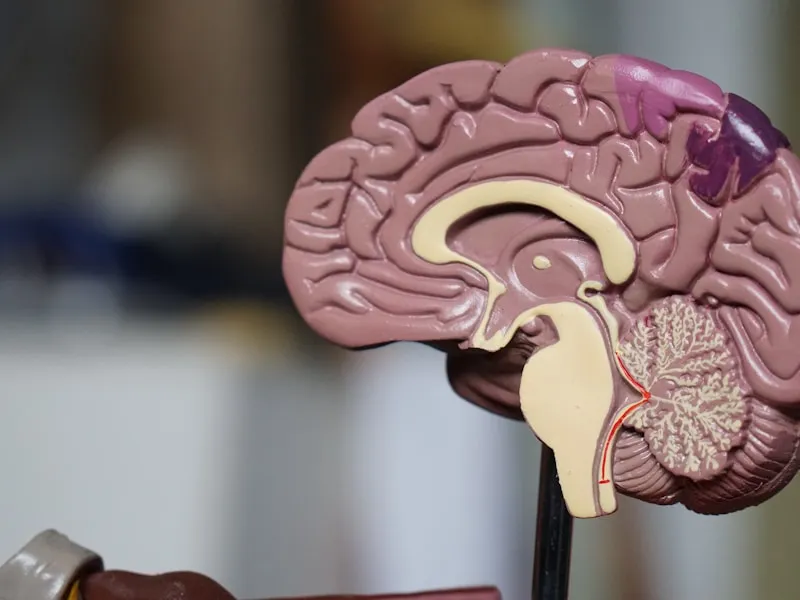解密 INFJ 的“超能力”:深入你的四种认知功能
感觉自己的大脑像个复杂的“操作系统”?这篇文章用生动的比喻和生活化的场景,带你认识 INFJ 的四种核心认知功能,并提供实用的训练方法,让你更好地驾驭自己的天赋。

解密 INFJ 的“超能力”:深入你的四种认知功能
如果你曾感觉自己的大脑像一台复杂的“操作系统”,时而能洞察未来,时而又因过度共情而“死机”,那么这篇文章就是为你准备的说明书。
我们将用生动的比喻,带你认识驱动 INFJ 的四种核心认知功能:Ni, Fe, Ti, Se。理解它们如何协同工作,你就能更好地驾驭自己的天赋,在理想与现实之间,找到属于你的最佳节奏。
INFJ 的“乐队”配置一览
想象一下,你的内心住着一支四人乐队,每个成员都有自己的角色和脾气。
| 功能 | 角色(比喻) | 核心任务 | “演奏”失常时 |
|---|---|---|---|
| Ni (内向直觉) | 乐队指挥 | 洞察抽象模式,预见未来,感知深层意义。 | 过度解读,脱离现实,陷入对未来的灾难性想象。 |
| Fe (外向情感) | 和声歌手 | 感受并回应他人情绪,维护团队和谐。 | 压抑自己,讨好他人,最终因情绪透支而“罢工”。 |
| Ti (内向思维) | 乐理专家 | 构建内在逻辑,确保一切精准、合理。 | 过度自我批判,陷入细节,因追求完美而寸步难行。 |
| Se (外向感觉) | 现场DJ | 体验当下,享受感官刺激,应对突发状况。 | 要么彻底“关机”,与现实世界“失联”;要么通过暴饮暴食、冲动消费来宣泄压力。 |
Ni (内向直觉):你的“未来雷达”
这是你的主导功能,也是你最强大的“超能力”。
它如何为你工作?
- 拼图大师:能将看似无关的信息,拼接成一幅完整的“意义地图”。
- 趋势预测家:总能在混乱中,敏锐地捕捉到未来的走向。
- 愿景导航仪:为你的人生使命提供清晰的图景,也激励他人看见更大的可能性。
何时会“信号不稳”?
- 当你过度沉迷于未来的可能性,而忽略了眼前的账单和邮件。
- 当你把直觉当成唯一的“真理”,听不进任何人的反馈。
- 当你反复在脑中预演最坏的结果,最后被焦虑捆绑,动弹不得。
如何校准你的雷达?
- “现实锚点”练习:每天写下三件具体发生的事,让自己“落地”。
- “证据清单”自问:当一个强烈的直觉出现时,问自己:“支持这个想法的客观证据是什么?”
- 视觉化输出:试着用画图或思维导图的方式,把你脑中的抽象蓝图呈现出来。
Fe (外向情感):你的“关系桥梁”
这是你与世界互动的主要方式,温暖而有力。
它如何为你工作?
- 氛围调节器:能迅速感知到场域的情绪变化,并主动去“暖场”。
- 情绪翻译官:擅长将复杂的感受,转化为温暖又有力的语言。
- 天生的协调者:非常适合做团队文化的守护者或需要高度同理心的角色。
何时会“电量耗尽”?
- 当你总是在回应别人的需求,却忘了问自己“我感觉怎么样”。
- 为了避免冲突而一再退让,直到内心积压的不满“火山爆发”。
- 当你耗尽所有能量后,可能会突然“砰”地一声关上心门(INFJ Door Slam)。
如何为自己充电?
- 练习“我”字句:在对话中,试着多用“我感觉……”和“我需要……”。
- 设定“情绪红线”:一旦感到疲惫或烦躁,就给自己按下暂停键。
- 建立“共情恢复菜单”:列出能让你恢复能量的活动,比如写日记、散步、听音乐。
Ti (内向思维):你的“内在逻辑教练”
这是你的第三功能,像一个严谨的教练,帮你把洞察变得可行。
它如何为你工作?
- 信息整理师:帮你把脑中纷乱的想法,整理成清晰的框架。
- 关键提问者:在讨论中,总能提出直击要害的问题。
- 蓝图工程师:在你的理想与现实之间,架起一座可以走通的桥。
何时会“过度执教”?
- 当它开启“完美主义审查模式”,让你觉得任何产出都“不够好”。
- 当它用冰冷的逻辑,去否定你真实的情绪和直觉。
- 当它让你在细节的迷宫里打转,迟迟无法做出决定。
如何与教练更好地合作?
- 拥抱“80/20法则”:告诉自己,完成80%比追求100%的完美更重要。
- 学习思维工具:尝试使用 OKR、逻辑树、五个为什么等工具,来辅助你的思考。
- 建立“自我质疑档案”:把你常见的自我否定记录下来,然后逐一寻找反驳的证据。
Se (外向感觉):你的“当下体验开关”
这是你的第四功能,也是最容易被你忽略的部分。它像一个提醒你“活在当下”的开关。
它如何为你工作?
- 危机应变者:在突发状况下,能让你迅速反应,关注具体细节。
- 灵感采集器:通过美食、音乐、旅行等感官体验,为你补充能量和创意。
- 身体的信使:让你不至于完全活在脑中,而是能感受到身体的真实存在。
何时会“短路”?
- 当你压力过大时,可能会通过暴饮暴食、冲动消费或无休止地刷手机来“宣泄”。
- 当你对外界的刺激过于敏感,干脆选择“关闭”所有感官,把自己孤立起来。
- 当你长期忽略身体发出的信号,直到健康亮起红灯。
如何打开这个开关?
- 安排“感官约会”:每周安排一次,全身心地品尝一种食物、聆听一张专辑,或练习正念散步。
- 让身体“说话”:学习一种运动或舞蹈,让身体成为你情绪的另一个出口。
- 开启“好奇心模式”:在日常生活中,有意识地去发现一些新鲜的细节。
一位 INFJ 的内心一天:看“内在乐队”如何演奏
为了让你更具体地感受这四种功能是如何运作的,让我们跟随一位名叫“小希”的 INFJ,度过她普通的一天:
早晨 8:00 - 准备上班
(Se 现场DJ 微弱地播放着背景音乐) 小希在衣柜前有些茫然,她感觉不到哪件衣服“对”,因为她的思绪早已飘远。(Ni 乐队指挥 正在后台构思一个下午会议的开场白) 她突然“看到”一个绝妙的切入点,能让所有人都理解项目的核心价值。这个想法让她精神一振。
上午 10:00 - 团队会议
(Fe 和声歌手 走上舞台中央) 小希注意到,同事A在提到某个方案时,嘴角有微小的下沉。她立刻感知到A可能对方案有疑虑,于是在会议中用温和的方式提问:“A,关于这一点,你是不是有一些我们没考虑到的担忧?” 团队的氛围因此变得更开放。
下午 3:00 - 撰写方案
(Ti 乐理专家 开始调试设备) 小希需要将上午 Ni 产生的宏大愿景,落实成具体可行的文字。她打开文档,开始构建逻辑框架,反复推敲每一个用词的准确性,确保方案无懈可击。这个过程有些耗神,但让她感到安心。
晚上 8:00 - 回家后
(Se 现场DJ 终于被允许点歌) 感到疲惫的小希,突然很想吃点甜食(Se的冲动)。在吃了两块蛋糕后,她意识到这是压力信号。于是,她关掉手机,点上香薰,开始写日记 (Ni+Ti的整合),梳理今天吸收到的所有信息和情绪 (Fe的排毒)。在安静中,她感觉自己慢慢“回血”了。
让你的“内在乐队”协同演奏
你的目标不是让某个功能变得更强,而是让它们更好地协同合作,像一支配合默契的乐队。
- Ni × Fe (愿景沟通):用讲故事的方式,把你的抽象蓝图变得有温度,能感染他人。不要只说“我们应该做什么”,而是描绘“想象一下,如果我们做到了,世界会是怎样一番景象”。
- Fe × Ti (价值落地):在倾听团队需求后,用你的逻辑能力,建立公平、透明且有效的规则。这能让你的“善意”不只是口号,而是能真正运作的系统。
- Ti × Se (快速实验):把你的完美想法,变成一个个小规模的、可以立即上手的“原型”或“实验”。用真实的体验来验证和迭代,而不是永远停留在脑内推演。
一个简单的日常练习
- 功能日记:每天睡前,问问自己:“今天我的‘指挥’、‘歌手’、‘专家’和‘DJ’分别做了什么?我感觉如何?它们是在合作还是在打架?”
- 每周调频:周末花15分钟,看看这周是否过度依赖某个功能(比如,是不是 Ni 思考过度,完全忽略了 Se 的身体感受?),并为下周设定一个小的“平衡练习”(比如,安排一次10分钟的正念散步)。
理解并接纳你的四种认知功能,就像是拿到了一份属于你自己的“人生操作指南”。持续练习,你的洞察将更容易被人理解,你的温柔也将拥有更坚实的力量。
延伸阅读
如果这篇文章对你有帮助,你可能也会对以下内容感兴趣:
探索人格优势与核心机制
标签
更新历史
全面修订:更新了核心观点和实践建议
内容扩展:增加了详细案例和实施步骤
继续深化你的 INFJ 旅程
选择一个与你最有共鸣的下一步:从测评自我、扩充工具到了解完整人格蓝图。
这篇文章对你有帮助吗?
你的反馈能帮助我们创作更好的内容
这篇文章最有帮助的部分是: